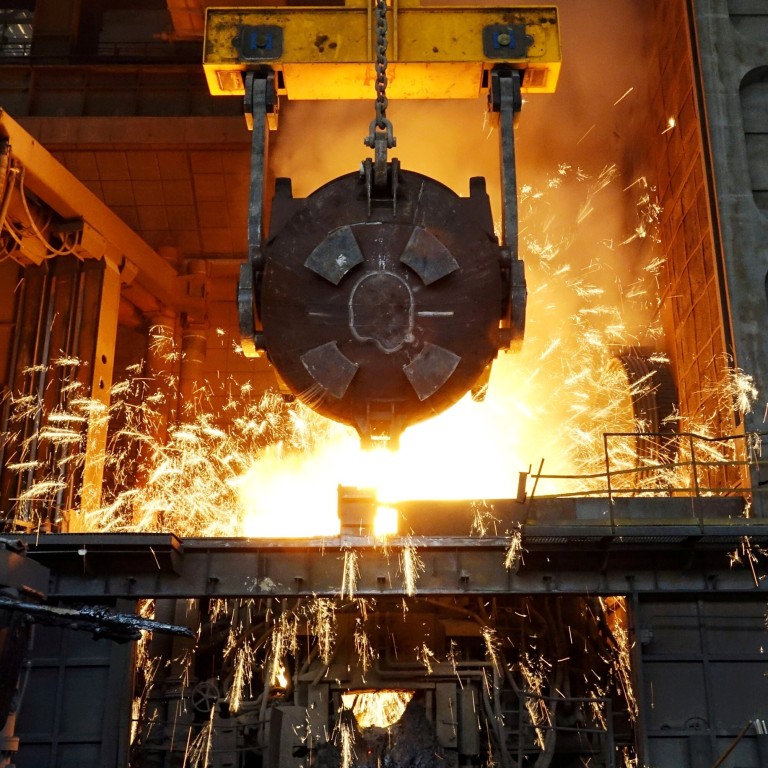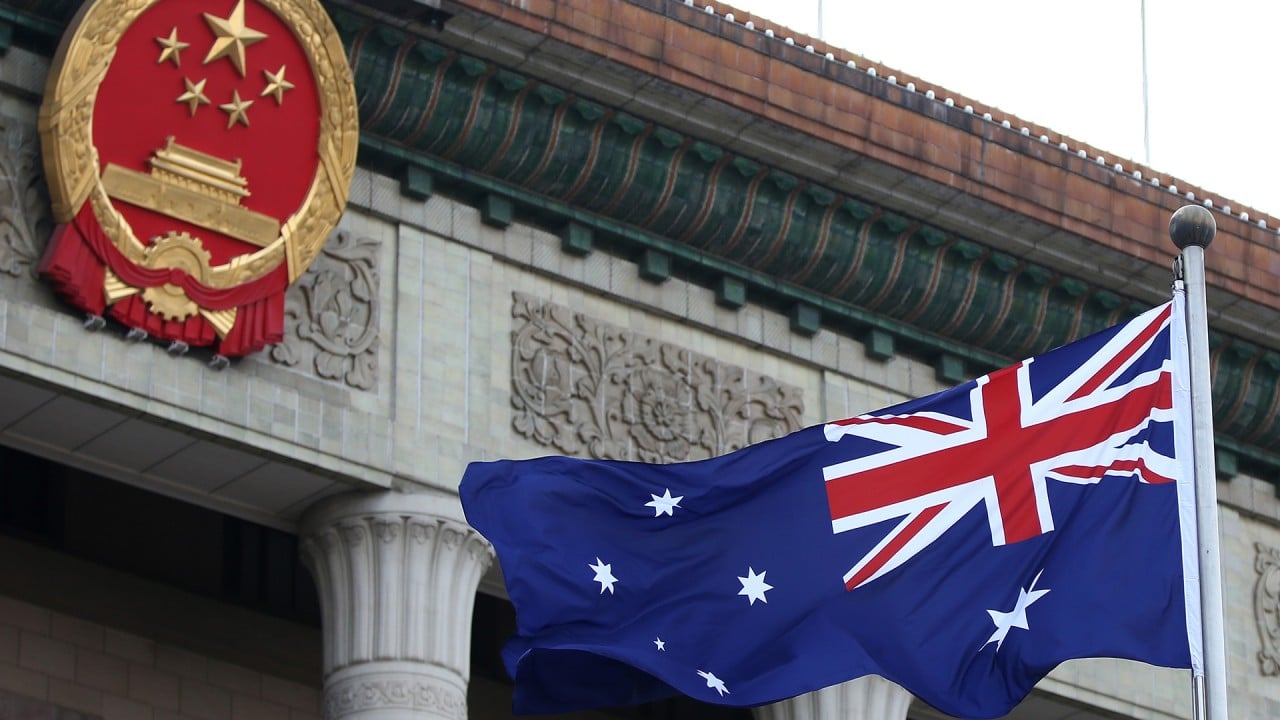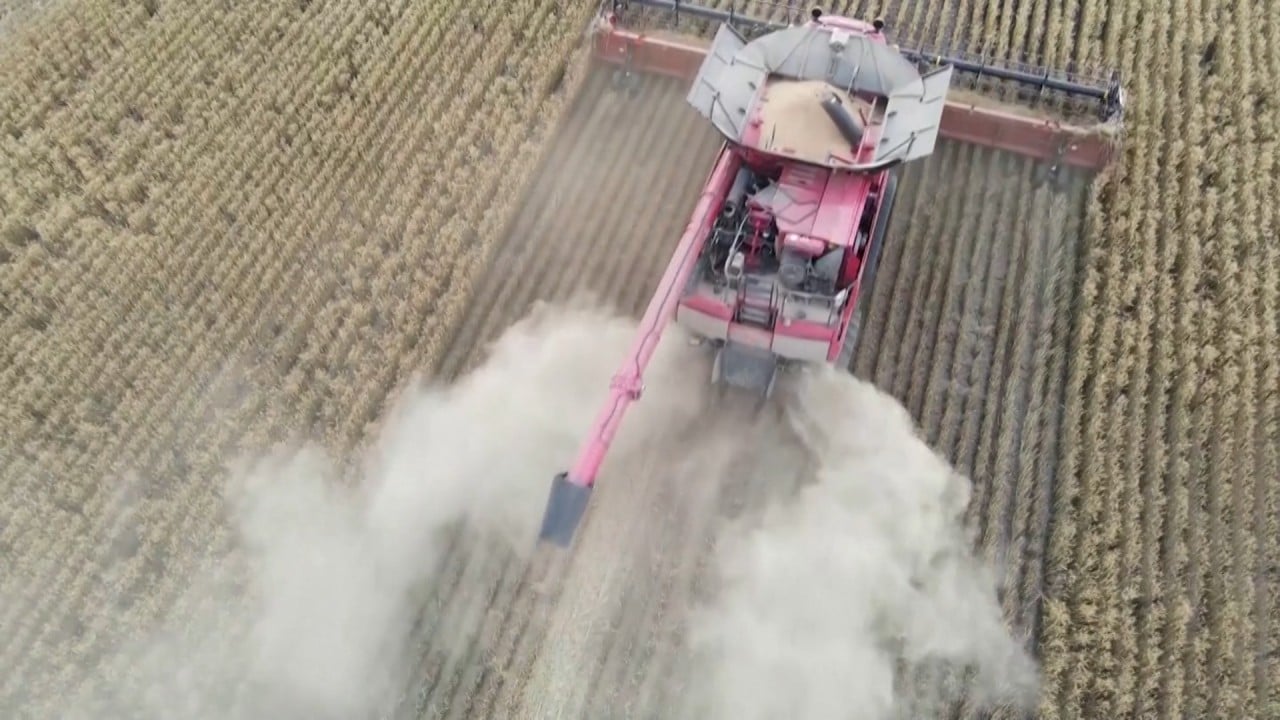
China-Australia relations: Beijing steel group demands answers from BHP over soaring iron ore prices
- The China Iron & Steel Association (CISA) says it had a ‘candid exchange of views’ with BHP on soaring iron ore prices on Thursday
- A spike in costs threatens the profitability of Chinese steel plants, which are on track to set a record for crude steel production this year
China’s steel industry body has demanded an explanation from Anglo-Australian miner BHP about the surging cost of iron ore, in a fresh sign of Beijing’s growing frustration about runaway prices for the steelmaking ingredient.
The China Iron & Steel Association (CISA) held a video conference on Thursday with BHP executives in which there was a “candid exchange of views” on the miner’s production, sales and pricing, according to a statement from the industry group.
Luo Tiejun, a CISA vice-president and a former official at the Ministry of Industry and Information Technology, questioned the company about the single day price rise of US$7.5 per tonne on the Platts 62 per cent iron ore index last Friday.
The company agreed to enhance communication with the association to ensure “an open and transparent iron ore market”, according to the briefing, which was attended by BHP’s vice-president of marketing and sales, Rod Dukino, and head of sales for iron ore Rohan Roberts.
BHP was quoted as saying production for the financial year that started in July would be robust and reach the high end of its planned 276 million to 286 million tonnes. It added its shipping plan has not been affected by weather.
The firm, which is headquartered in Melbourne, did not issue a statement after the meeting or immediately reply to enquiries.
The spike in imported iron ore prices threatens the profitability of steel plants in China, which buy nearly 90 per cent of their supply from overseas. Crude steel production is set to reach a record high of 1.05 billion tonnes this year, a global record which accounts for more than 70 per cent of expected global output.
The recent iron ore price was abnormal. It generated a huge bubble, and greatly threatened our industrial security
In the first 11 months of the year, imports of the mineral increased 11 per cent year on year to 1.07 billion tonnes, with Australia supplying more than 60 per cent.
China’s reliance on Australian iron ore has saved it from trade restrictions imposed by Beijing on other Australian imports, from wine to barley.

07:55
Australia ditched diplomacy for ‘adversarial approach’ to China and ‘a pat on the head’ from US
Li Xinchuang, president of China Metallurgical Industry Planning & Research Institute, said the profitability of global iron ore miners was “insane”.
“The recent iron ore price was abnormal,” Li, who is also deputy head of the CISA, said over the phone. “How can it go up so quickly in such a short time? It generated a huge bubble, and greatly threatened our industrial security.”
China’s post-pandemic infrastructure-led recovery, together with that of many other countries, fuelled expectation of more iron ore demand.
The Platts 62 per cent iron ore index used in Australia jumped nearly 5 per cent to US$158 per tonne on Thursday. The price on the Dalian Commodity Exchange rose 6.8 per cent the same day and jumped above 1,000 yuan per tonne for the first time in seven years.
“The purchase and delivery of Australian ores remains good,” according to a trader who declined to be named because of the sensitivity of the matter.

01:15
China-Australia trade: Beijing set to ban nearly US$400 million worth of Australian wheat imports
“The market is upbeat about the global economic recovery and subsequent higher demand, rather than worrying about supply restrictions. There are signs of a short squeeze in the domestic futures market.”
On Wednesday, the Dalian Commodities Exchange, where most futures contracts are traded, announced a cap on the trading position of May 2021 delivery contracts to 5,000 lots from next week.
“The reliance on Australian ores won’t be changed in the long run,” Li said. “We are interdependent. There would be a price to pay if quarrels continue.”

